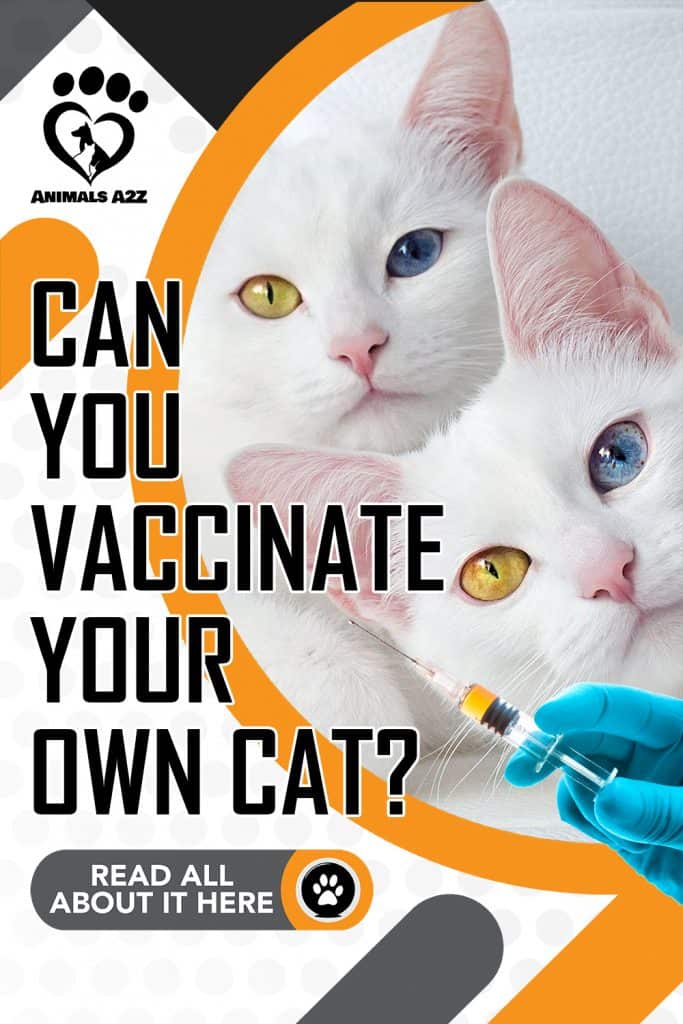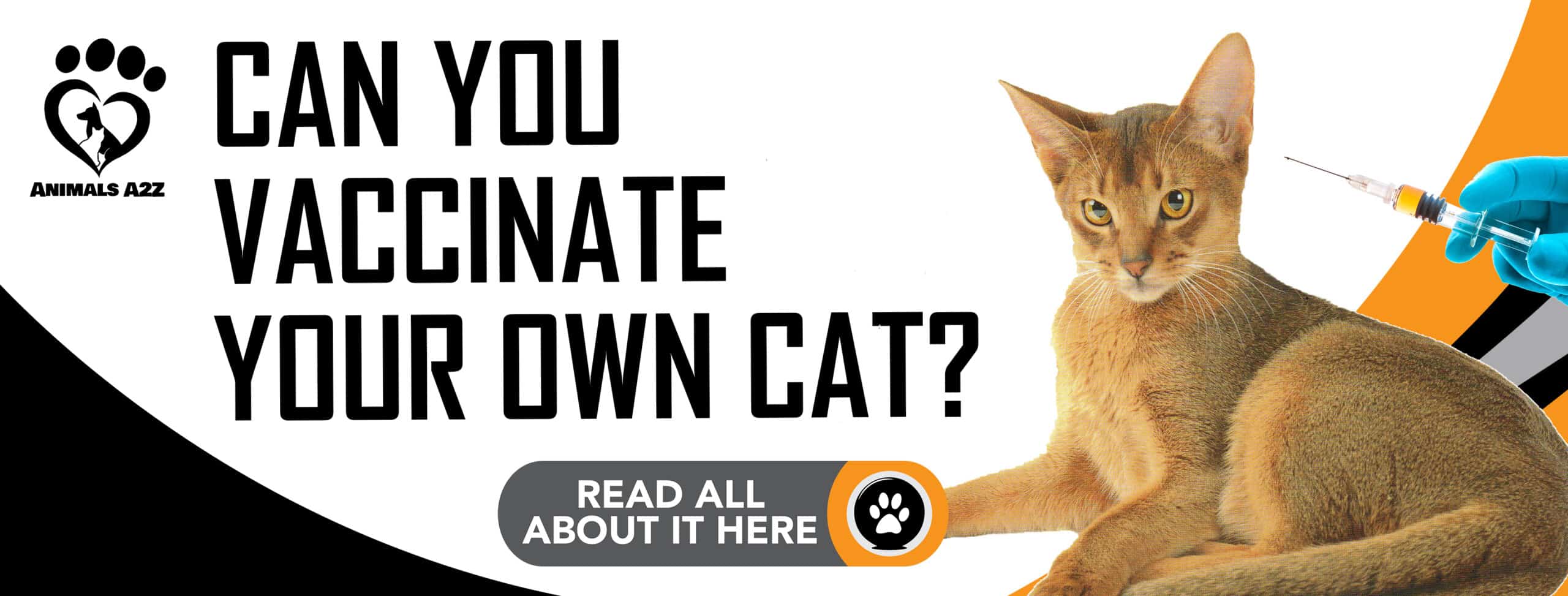Vaccination is an essential technique to help your cat be protected from diseases that may weaken its health and compromise its well-being. The primary role of vaccination is to produce immunity against foreign bodies that may enter your cat’s body and cause diseases and complications. Vaccination is widely used anywhere in the world for various uses. For humans, it usually starts as young as they are. This vaccination should take place for cats while your cats are still kittens, generally from 6 to 8 weeks, until they reach 16 weeks.
Vaccination comes with a series of shots. This shot usually happens every 3 to 4 weeks. These shots are good for certain protections against various diseases such as rabies, panleukopenia (feline distemper), feline calicivirus, and feline viral rhinotracheitis. Kittens need more shots compared to adult cats.
So can you vaccinate your own cat and save time, money and reduce stress? Yes, sometimes that is possible! But not always. Stay on this page and find out when it is possible.
Table of Contents
Home Vaccination
Home vaccination can be administered to your cat. It means convenience and less expensive. It also helps your cat not to be stressed out from travel that may result in complications. However, home vaccination is not possible at all times. It should be done only when your cat is healthy and is not suffering from any disorder or health issues. If this happens, go to the nearest veterinary hospital and seek professional help to help you administer the vaccination. However, it may cost you money and time.
Before doing the home vaccination, prepare your cat for the vaccination. Make sure that you are not suffering from any health issues. In doing the home vaccination, prepare the syringe, and make sure that it is safe to use. Prepare for the next shot of the vaccination. Usually, every Feline Focus Vaccine contains one syringe and two vials with liquid and freeze-dried contents. After everything is set, prepare to inject the shot into your cat. The recommended vaccination area is the loose skin at the back of the neck and the shoulder of your cat. Then, inject the entire contents of the syringe you have prepared.
Remember that vaccinating your cat at home is a rigorous job, so make sure that everything is prepared. If you feel like you are not fit to do it, then do not do it. This job is not a joke because one wrong mistake will cause complications to your cat’s health.
Advantages and Disadvantages of Home Vaccination
Just like any medical procedure, home vaccination has its advantages and disadvantages. Its benefits include convenience and financial edge. If you do it at home, you do not need to spend a lot of money doing it. You also do not need to complicate and adjust your time since you have all the time in your house to do it. On the other hand, the disadvantages of home vaccination include the danger and risk of performing it. If improperly done, there is a higher risk that it will worsen the condition of your health.
Indeed, this home vaccination is vital for both the owner and its cat. Still, it requires preparation to do it properly.
Common questions about your cat’s vaccination
Is it okay not to vaccinate your cat?
It is okay, and it is not. Vaccinating your cat helps your cat be protected against the diseases mentioned above. This provides them immunity for better protection. But just like in the old days, cats can live without vaccinations at all. However, you cannot guarantee that it will be protected against any diseases. Vaccination provides fortification of the natural immunity of your cat. It only improves the immune system of your cat. So that means that without the vaccination, your cat can still live, but it will experience a lot of complications in its health. It might be okay not to vaccinate your cat. It may even cause a lot of difficulties, so it’s better to vaccinate it, whether at home or in the veterinary clinic.
Is home vaccination effective?
The efficiency of vaccination is only tested when your cat responds directly to any threats to its health. These threats can cause a lot of complications. So, as early as 6 weeks to 8 weeks, your cat needs to be vaccinated to help its body develop and improve its immunity against any diseases.
Home vaccination is just as effective as any vaccination. If done correctly, it is sufficient to help fight against any diseases. However, if you are applying this kind of vaccination, you should prepare it properly and should be knowledgeable about the process of doing it to ensure its efficiency.
Does home vaccination extend your cat’s life?
Vaccinating your cat may help extend your cat’s life, but it does not give you the full guarantee that it will. They say cats have nine lives, but as a matter of fact, this is not true because cats’ lives are affected by numerous factors that may cause it to malfunction and deteriorate over time. That is why your best shot at extending your cat’s life is to vaccinate it.
There are two ways of vaccinating your cat. It can be through professional help, or you can do it yourself. However, in-home vaccinating, the efficiency of this relies on your preparation in performing it.
Conclusion
Home vaccination is an excellent help to you and your cat, for it provides convenience and efficiency at the same time. It helps boost your cat’s health. It also enables you to save money without compromising your cat’s health and life. Remember that the success of the process relies on your preparation, so prepare ahead of time before doing it. Now, if you’re set to go, do not hesitate to vaccinate your cat to extend its life and time with you.


